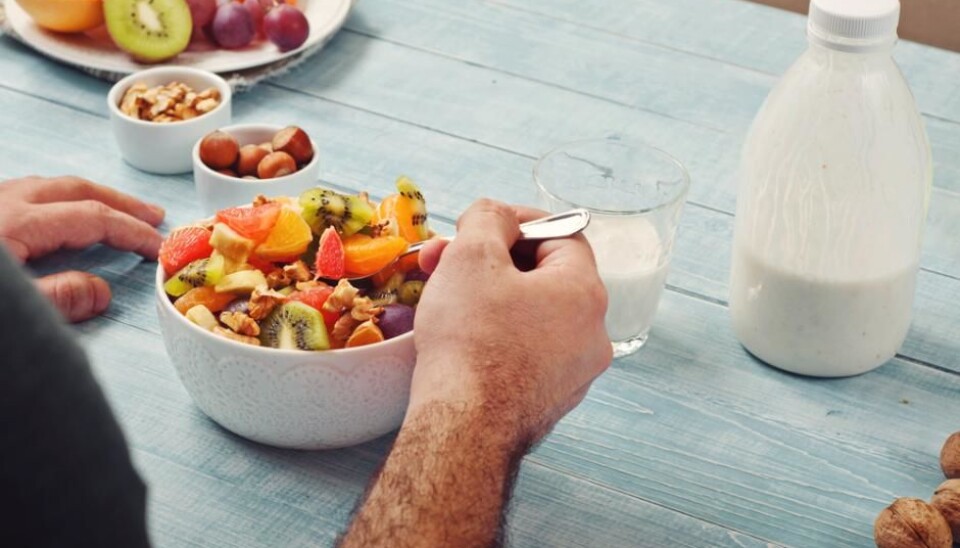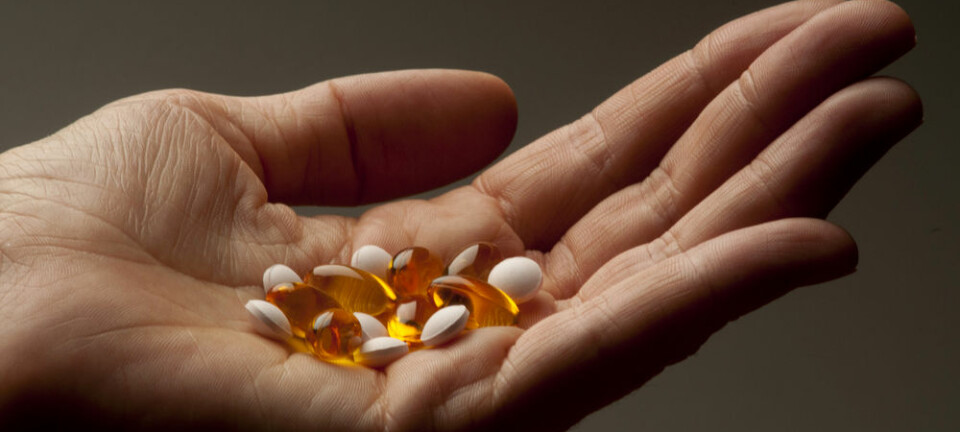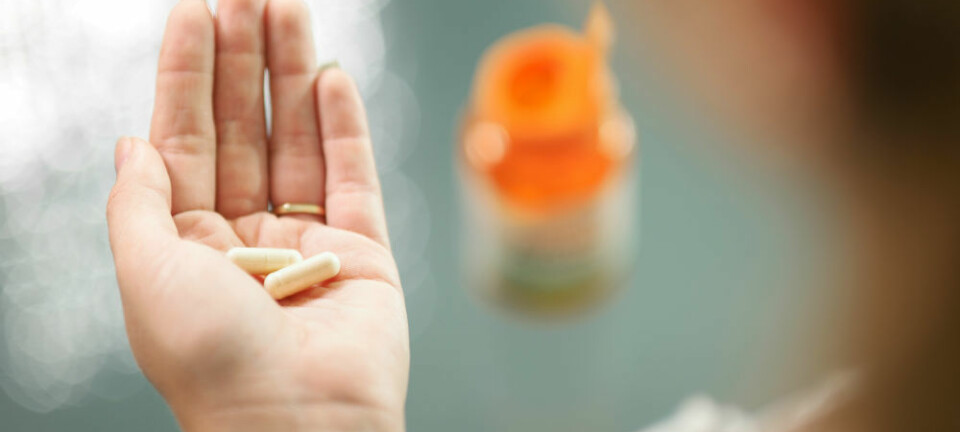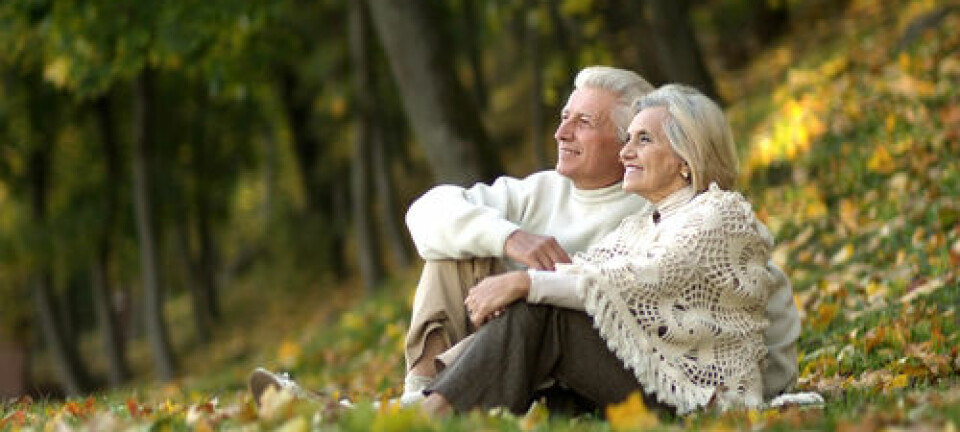
Scientist: Hypotheses on antioxidants are complete nonsense
Eating antioxidants in fruits and vegetables does not help combat free radicals in the body or fight disease, but they do help stimulate the body's defences.
Polyphenols in blueberries and green tea, beta-carotene in carrots, and vitamin C in red peppers and lemons.
These are some of the classic antioxidants that are often thought to help combat free radicals and oxidation in the body and thereby prevent diseases like cancer and heart disease.
But just because we eat lots of these antioxidants, does not mean that they are doing the job, says Professor Lars Porskjær Christensen, from The University of Southern Denmark, who studies the health-promoting effects of bioactive substances.
“The traditional hypotheses on antioxidants are complete nonsense,” says Christensen.
“They say that substances shown to have an anti-oxidative effect in the laboratory, the so-called ‘direct antioxidants’, will have the same effect in the body if you consume foods that contain these substances, and that they will have a beneficial effect on our health by attacking harmful free radicals,” he says.
“This assumption has never been proven in reality,” he says.
Intestine does not easily absorb antioxidants
There are a few reasons why this hypothesis is wrong, says Christensen.
“The concentration of polyphenols and other antioxidants in the blood are often so low that they don’t have an effect,” he says.
“Many [antioxidants] have difficulty passing through fat-loving membranes because they are relatively polar. They have to be broken down first and made less polar than the stomach’s bacteria before they can pass through the cell membrane.”
“Additionally, antioxidants are formed in the liver and the largest part of them are quickly excreted in the urine. For the rest we don’t know much about where the substances go and how much is absorbed into cells, where the central redox processes take place,” says Christensen.
Professor Lars Ove Dragsted from the Department of Nutrition, Exercise and Sports, at the University of Copenhagen, Denmark, agrees.
“It’s a big assumption that direct antioxidants, like polyphenols, work as antioxidants in the human body and therefore make us healthier,” says Dragsted.
“Antioxidants and antioxidation are complex concepts, because antioxidants are included in the so-called redox balance in the body. It completely depends on the environment that they are in, and they can work as an antioxidant in one situation and a pro-oxidant in another,” he says.
A good example of this is vitamin C, which can act both as an antioxidant and as a pro-oxidant.
Read more: Antioxidants doubled spread of cancer in mice and human cells
There are still reasons to eat fruit and veg
So should we forget about eating fruit and vegetables?
Absolutely not, say the scientists, as they do contain other bioactive substances that have antioxidant effects in the body.
“Fruit and vegetables contain bioactive substances that in many cases don’t work as an antioxidant if you analyse them outside of the body. But it looks like they do work as an antioxidant inside the body, as they activate the body’s own anti-oxidative response and combat oxidative stress,” says Christensen.
“These bioactive substances are in my estimation, the real secret to eating fruits and especially vegetables,” he says.
“It is the natural toxins in plants that function as indirect antioxidants, by increasing the body’s own cell-protecting proteins such as detoxification enzymes and antioxidant enzymes,” he says.
Read more: Antioxidants can reduce the effect of endurance training
Do any direct antioxidants work?
Antioxidants like polyphenols can have an indirect benefit if they stimulate the body’s own anti-oxidative response, says Dragsted.
“Even though polyphenols show a strong antioxidative effect in the laboratory, we’re absolutely sure that they don’t work as a direct antioxidant in the body. In general they probably work as an indirect antioxidant that can stimulate the body’s own anti-oxidative response, but we need more studies to know for sure,” he says.
But Dragsted is certain that some of the more well-known antioxidants, including vitamin C, E, and beta-carotene, do not have the desired effect in the human body.
“The research on vitamin C and E are largely negative. Most studies show that they don’t affect the redox-balance. They are of course important to combat deficiencies, but it doesn’t help to take more than you need,” he says. And adds that most healthy people have sufficient quantities and don’t need to consume more.
Beta-carotenes only have an antioxidant effect in certain systems, such as plants, and taking excessive amounts of it (much more than is found in fruit and vegetables) can increase the risk of cancer in smokers.
Selenium may have an indirect antioxidant effect in the body, but the results are inconsistent.
“Selenium is another type of indirect antioxidant, and there’s a lot of research on it’s effect in the body. Some studies have shown a beneficial effect, while others haven’t. But the effect depends on the form in which it’s taken, which may explain why some studies don’t show a health-benefit,” says Dragsted.
Eat fruit and veg, but avoid antioxidant supplements
The scientists advice is to continue eating fruit and vegetables, but to avoid high levels of antioxidants as found in dietary supplements.
In such high doses, they can have the opposite effect and function as a pro-oxidant, which is harmful to our bodies.
“If for example you consume large amounts of polyphenols, it has the opposite effect because the body's oxygen will oxidise polyphenols, forming new radicals, which is what antioxidants are supposed to remove from the body,” says Christensen.
He emphasises that a healthy intake of food is not a problem, and that such high doses are only consumed through dietary supplements.
-------------
Read the Danish version of this article on Videnskab.dk
Translated by: Catherine Jex









